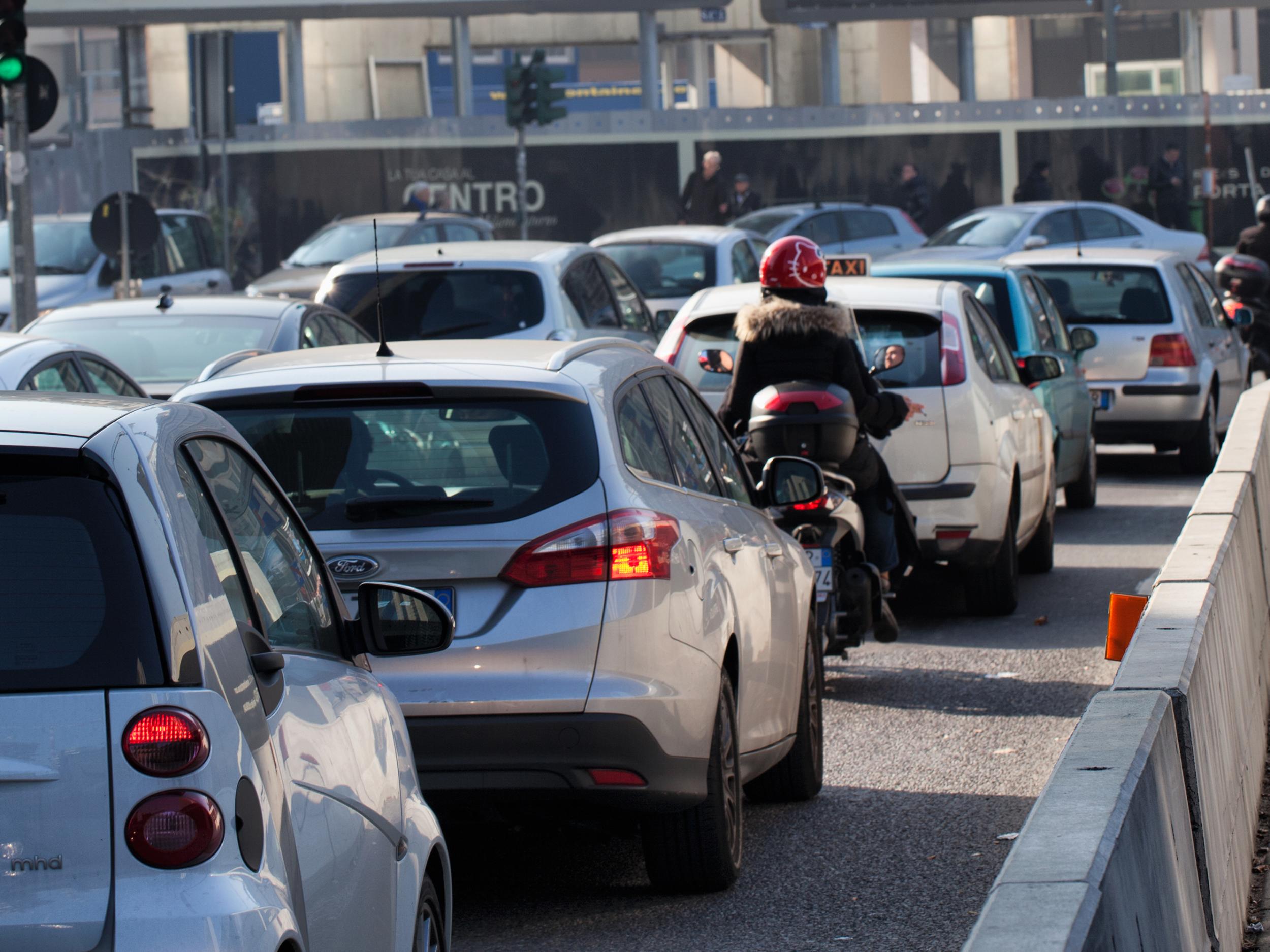Milan and Turin ban cars to combat smog and air pollution
European Union standards dictate that cities should have no more than 35 days of poor air quality

Your support helps us to tell the story
From reproductive rights to climate change to Big Tech, The Independent is on the ground when the story is developing. Whether it's investigating the financials of Elon Musk's pro-Trump PAC or producing our latest documentary, 'The A Word', which shines a light on the American women fighting for reproductive rights, we know how important it is to parse out the facts from the messaging.
At such a critical moment in US history, we need reporters on the ground. Your donation allows us to keep sending journalists to speak to both sides of the story.
The Independent is trusted by Americans across the entire political spectrum. And unlike many other quality news outlets, we choose not to lock Americans out of our reporting and analysis with paywalls. We believe quality journalism should be available to everyone, paid for by those who can afford it.
Your support makes all the difference.A pair of northern Italy's largest cities have introduced traffic restrictions in a bid to tackle air pollution and smog.
Bans on certain types of vehicle have been introduced temporarily in Milan and Turin, both of which have exceeded safe limits for pollution in recent days.
Despite hopes that rain and lower levels of traffic during the holiday season would help combat smog, air pollution has crept to dangerous levels in recent weeks.
A daytime traffic ban has been extended to include relatively clean Euro 5 diesel cars in Turin, as the city raises its air pollution alert level to “red”.
As a result, half-a-million cars and vans will not be able to drive on the city's roads between 8am and 7pm every day, La Repubblica newspaper reported.
In Milan an “orange” warning is in force, limiting vehicles classified as having Euro 4 emission standards or lower. Euro 4 vehicles include petrol cars, vans, minibuses and other specialist vehicles.
There are now similar traffic limitations in place across much of northern Italy. Across the Veneto region, 85 municipalities have introduced similar measures.
Earlier this year, a report from environmental organisation Legambiente, revealed that 25 cities in Italy had this year exceeded the EU’s air quality standards by mid-October.
PM10 pollution, which consists of fine particles less than 10 micrometres in diameter that can easily be inhaled, was a particular problem, it said.
European Union standards dictate that cities should have no more than 35 days of poor air quality, when PM10 levels rise above a threshold amount, every year.
In Turin safe limits have been exceeded for 15 consecutive days.
Restrictions on cars are not new to Italy and major cities including Rome have previously attempted to address the country’s air pollution problem by implementing vehicle bans.
Current bans follow a trend of particularly poor air quality in the “industrial triangle” of northern Italian cities.
Between January and mid-October, Turin had 66 days of poor air quality and Milan had 50. Other cities with extended periods of excessive pollution include Venice, Cremona and Padova.
Further east in Verona, a ban has been implemented on stoves and fireplaces in an effort to curb its levels of pollutants.
As bad weather continues, there are hopes it will help to alleviate the air pollution problem and allow local politicians to lift the temporary bans.
Verona's environment councillor Ilaria Segala told the Corriere della Sera newspaper that Arpav, the environmental protection body for the Veneto region, was unlikely to "trigger further restrictive measures" when it releases its new bulletin later this week, because of the weather forecast for the next few days.
Join our commenting forum
Join thought-provoking conversations, follow other Independent readers and see their replies
Comments